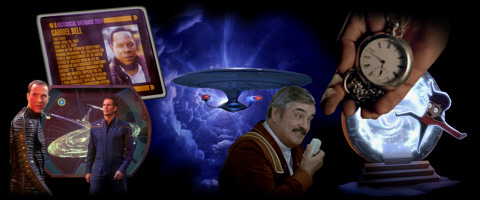The Logic of Time Travel

Time travel is one of the most popular and most exciting topics in science fiction, but comes with weird paradoxes. The following considerations focus on the logical feasibility of time travel, rather than on a physical or even a technical solution. It may seem trivial but is crucial that suspending disbelief is the key to accept and understand fictional concepts. Anyone who reasons along the lines that "time travel must be impossible because I could go and kill my ancestor" will probably never enjoy science fiction.
Time Travel - General Considerations - six theories on how time travel may "work" logically, and other musings
Time Travel in Star Trek: The Original Series (TOS)
Time Travel in Star Trek: The Next Generation (TNG)
Time Travel in Star Trek: Deep Space Nine (DS9)
Time Travel in Star Trek: Voyager (VOY)
Time Travel in Star Trek: Enterprise (ENT)
Time Travel in the Abramsverse
Time Travel in Star Trek: Discovery (DIS) 
Time Travel in Star Trek: Picard (PIC)
Time Travel in Star Trek: Strange New Worlds (SNW)
Time Travel in Star Trek: The Animated Series (TAS)
Time Travel in Star Trek: Lower Decks (LOW) 
Time Travel in Star Trek: Prodigy (PRO) 
Related Theory by Lee Canaday
Since there are still six different theories on the effects of time travel, my above considerations are not entirely satisfying. There should be something like a "Grand Unifying Theory" of time travel, combining the single theories and thereby rationalizing the effects shown in science fiction, even if they appear to be completely different. I was very glad to see that Lee Canaday had virtually the same idea. Read his considerations which are one step further in this direction.
The Effects of Time Travel on History in a Single Time Stream Universe - by Lee Canaday
See Also
Dealing with Continuity Issues of the Abramsverse - general thoughts and the policy at EAS
Timeline - Alternate Timelines - timelines created by time travel














